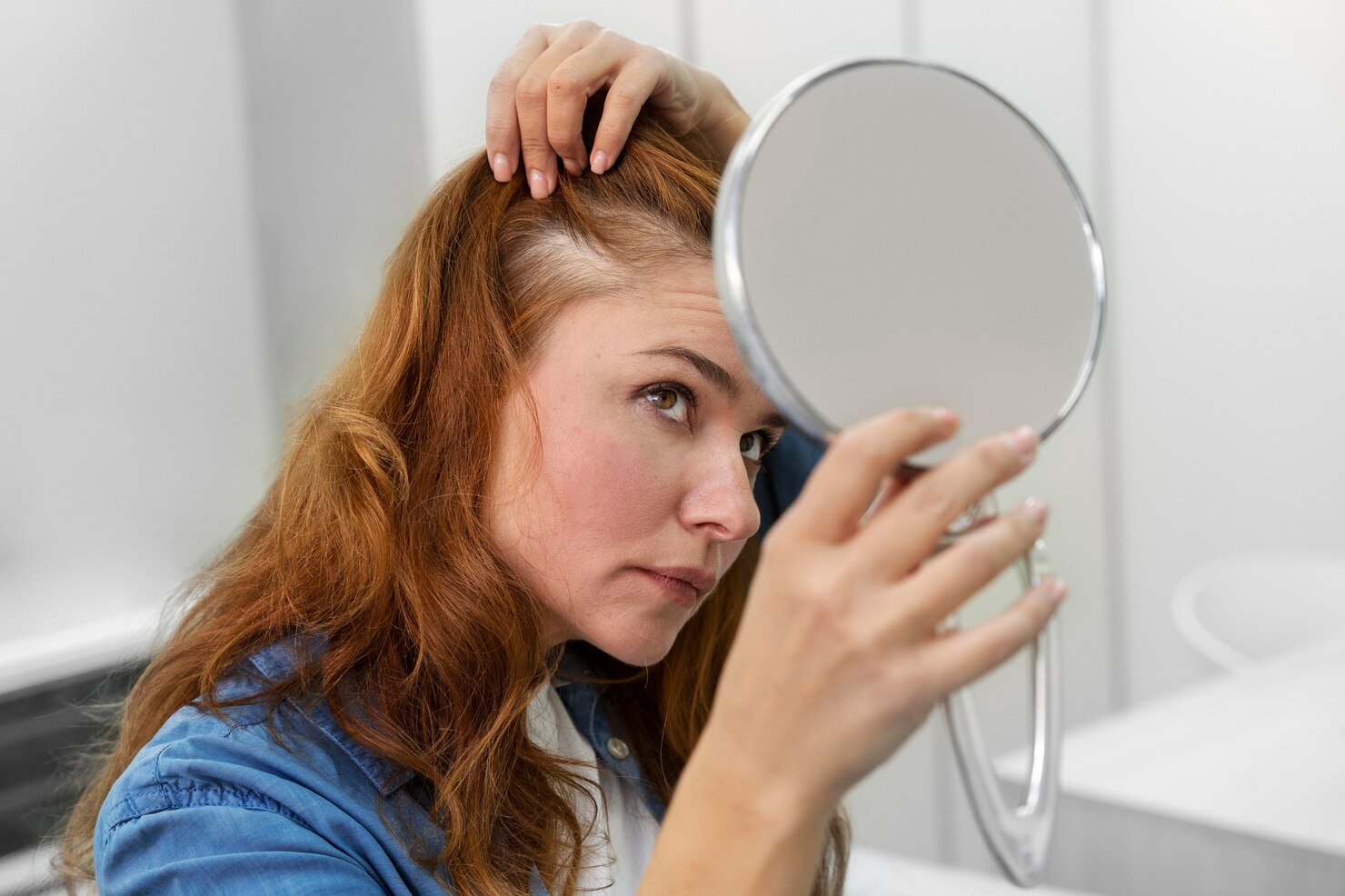The COVID-19 pandemic has had widespread health effects, with many people reporting unexpected symptoms even after recovering from the virus. One such symptom is hair loss, which has raised concerns among those experiencing excessive shedding. But can COVID-19 really cause hair loss? In this article, we’ll explore how post-viral hair shedding occurs, why COVID-19 triggers it, and what you can do to manage it.
Understanding Post-Viral Hair Shedding (Telogen Effluvium)
Hair grows in cycles, with each strand going through three key phases:
- Anagen (Growth Phase) – Hair actively grows for 2-7 years.
- Catagen (Transition Phase) – A brief phase where hair stops growing.
- Telogen (Resting/Shedding Phase) – Hair falls out to make way for new growth.
When the body experiences a significant stressor, such as an illness or emotional trauma, a higher percentage of hair follicles can shift prematurely into the telogen phase, leading to excessive shedding. This condition is known as telogen effluvium, and it is temporary.
How COVID-19 Triggers Hair Loss
COVID-19 can lead to telogen effluvium due to:
- Physical Stress from Illness – Fever, inflammation, and immune system activation can disrupt the hair growth cycle.
- Emotional Stress & Anxiety – The psychological effects of the pandemic, including anxiety and depression, contribute to hair shedding.
- Nutritional Deficiencies – Loss of appetite, changes in diet, or poor nutrient absorption during illness can weaken hair.
- Post-Viral Effects & Inflammation – COVID-19 can cause prolonged inflammation, affecting the scalp and hair follicles.
How Long Does COVID-19-Related Hair Loss Last?
Hair shedding due to COVID-19 typically occurs 2-3 months after infection and can last 3-6 months. However, since the hair follicles are not permanently damaged, hair usually regrows once the body recovers.
Tips to Manage and Prevent Hair Loss After COVID-19
- Be Patient – Hair regrowth takes time, and excessive stress can prolong shedding.
- Eat a Nutrient-Rich Diet – Include protein, iron, biotin, and vitamins A, D, and E to support hair health.
- Use Gentle Hair Care – Avoid harsh chemicals, excessive heat, and tight hairstyles that may worsen hair loss.
- Try Hair Growth Treatments – Minoxidil (Rogaine) or natural scalp treatments may help boost regrowth.
- Reduce Stress – Meditation, yoga, and regular exercise can help regulate stress hormones.
- Consult a Doctor – If hair loss persists beyond six months, seek medical advice to rule out underlying conditions.
Final Thoughts
COVID-19-related hair loss is a temporary condition caused by physical and emotional stress rather than direct viral damage to hair follicles. If you’re experiencing post-viral hair shedding, know that your hair will likely grow back in time. By focusing on overall health, proper nutrition, and stress management, you can support a smooth recovery.







